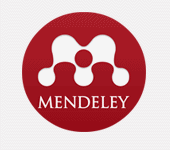Konsep Diri dan Resiliensi Orangtua yang Memiliki Anak Tunagrahita
Abstract
Mentally retarded is a child who has intelligence below average. Mentally retarded children have an inability to take care of themselves, help themselves, communicate, adapt to the environment and simple skills. Mentally retarded itself has a high level of dependence on other people. Parents are one of the roles that are needed by children with intellectual disabilities in achieving their growth and development. Where the general reaction of parents when they find out that their child has special needs includes shock, shame and depression, and parents in having children with special needs usually try to reject the reality. For this reason, self-concept and parental resilience are very important in providing guidance and assistance to the child until he grows up. This study aims to see an overview of self-concept and resilience of parents who have children with mental retardation special needs. This type of research uses quantitative descriptive methods, the population in this study are all parents who have children aged 5-17 years, totaling 41 respondents and the number of samples in the study is 41 respondents with sample skills using total sampling and univariate analysis. The majority of self-concepts of parents who have children with mental retardation in the positive category are 24 respondents (63.2%). The majority of the resilience of parents who have children with mental retardation in the high category are 22 respondents (57.9%). So parents who have children with special mental retardation needs in this study have a positive self-concept and high resilience.
Keywords: Self-concept, resilience, parent, mentally disabled
Full Text:
PDFReferences
DAFTAR PUSTAKA
Aprianti, L., Musthofa, A. and Rokayah, C. (2018) ‘Gambaran Konsep Diri dan Kecemasan Pada Orangtua Yang Memiliki Anak Retardasi Mental Di Sekolah Luar Biasa B-C Kurnia Kabupaten Garut’, Jurnal Sehat Masada, XII, pp. 176–183.
Budiyanto (2018) Merancang Identifikasi, Asesmen, Planing Matriks dan Layanan Kekhususan Peserta Didik Berkebutuhan Khusus Di Sekolah Inklusif. Surabaya: Jakad Publishing.
Desiningrum, D. R. (2016) Psikologi Anak Berkebutuhan Khusus. Yogyakarta: Psikosain.
Ginintasasi, R. (2016) Program Bimbingan dan Konseling Kolaboratif dalam Penanganan Anak dan Remaja Autis. Bandung: Pt. Refika Aditama.
Hendriani, W. (2018) Resiliensi Psikologis Sebuah Pengantar. Jakarta: Prenada Media Group.
Hermawati, N. (2018) ‘Resiliensi Orang Tua Sunda yang Memiliki Anak Berkebutuhan Khusus’, 1(1), pp. 67–74.
Kemenkes (2018) Disabilitas. Jakarta.
Lisinus, R. and Sembiring, P. (2020) Pembinaan Anak Berkebutuhan Khusus (Sebuah Perspektif Bimbingan dan Konseling). Yayasan Kita Menulis.
Marliyana (2014) ‘Pengalaman Ibu Merawat Anak dengan Tunagrahita Di Bandar Lampung’, Jurnal Kesehatan, 8, pp. 50–57.
Meidartati, Hayati, S. and Aliyah, R. (2018) ‘Gambaran Harga Diri Ibu Yang Memiliki Anak Retardasi Mental Usia 7-12 tahun’, VI(1), pp. 51–57.
Muhith, A. (2015) Pendidikan Keperawatan Jiwa Teori dan Aplikasi. Yogyakarta: Andi.
Rahmitha (2011) Orang Tua dengan Anak yang Berkebutuhan Khusus. Kementrian Pedidikan Nasional.
Riskesdas, T. (2018) Laporan Provinsi Sumatera Selatan RISKESDAS 2018. Jakarta.
Solihin, A. M. et al. (2017) Menjadi Orang Tua Hebat Untuk Keluarga dengan Anak yang Memiliki Disabilitas. Jakarta: Kementrian Pendidikan dan Kebudayaan.
Suwaji, I. (2014) ‘Hubungan Antara Penerimaan Orang Tua dan Konsep Diri Dengan Motivasi Berprestasi Pada Anak Slowlearner’, 3(03), pp. 283–288.
Valentia, S., Sani, R. and Anggreany, Y. (2017) ‘Hubungan Antara Resiliensi dan Penerimaan Orangtua Pada Ibu Dari Anak yang Terdiagnosis Autism Spectrum Disorder (ASD)’, 4(1), pp. 43–58.
WHO (2015) WHO GLOBAL DISABILITY ACTION PLAN 2014-2021. Switzerland.
DOI: http://dx.doi.org/10.30829/jumantik.v6i1.7957
Refbacks
- There are currently no refbacks.
Copyright (c) 2021 Eugennia Sakanti Putri, Ketut Suryani, Novita Elisabeth Daeli

This work is licensed under a Creative Commons Attribution-ShareAlike 4.0 International License.





